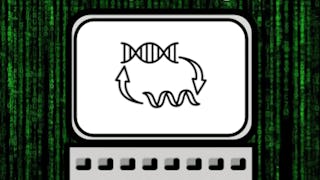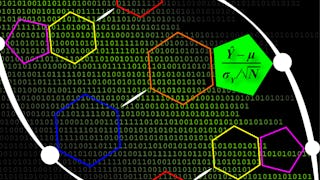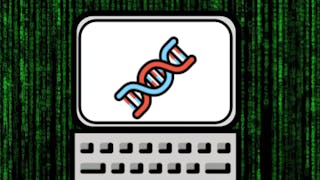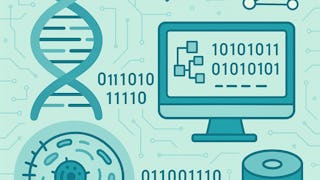This course introduces you to the basic biology of modern genomics and the experimental tools that we use to measure it. We'll introduce the Central Dogma of Molecular Biology and cover how next-generation sequencing can be used to measure DNA, RNA, and epigenetic patterns. You'll also get an introduction to the key concepts in computing and data science that you'll need to understand how data from next-generation sequencing experiments are generated and analyzed.



Introduction to Genomic Technologies
This course is part of Genomic Data Science Specialization


Instructors: Steven Salzberg, PhD
Access provided by NIMT Educational Institutions
122,361 already enrolled
(4,817 reviews)
Skills you'll gain
Details to know

Add to your LinkedIn profile
5 assignments
See how employees at top companies are mastering in-demand skills

Build your subject-matter expertise
- Learn new concepts from industry experts
- Gain a foundational understanding of a subject or tool
- Develop job-relevant skills with hands-on projects
- Earn a shareable career certificate

There are 4 modules in this course
In this Module, you can expect to study topics of "Just enough molecular biology", "The genome", "Writing a DNA sequence", "Central dogma", "Transcription", "Translation", and "DNA structure and modifications".
What's included
8 videos2 readings1 assignment
In this module, you'll learn about polymerase chain reaction, next generation sequencing, and applications of sequencing.
What's included
3 videos1 assignment
The lectures for this module cover a few basic topics in computing technology. We'll go over the foundations of computer science, algorithms, memory and data structures, efficiency, software engineering, and computational biology software.
What's included
6 videos1 assignment
In this module on Data Science Technology, we'll be covering quite a lot of information about how to handle the data produced during the sequencing process. We'll cover reproducibility, analysis, statistics, question types, the central dogma of inference, analysis code, testing, prediction, variation, experimental design, confounding, power, sample size, correlation, causation, and degrees of freedom.
What's included
10 videos2 readings2 assignments
Earn a career certificate
Add this credential to your LinkedIn profile, resume, or CV. Share it on social media and in your performance review.
Instructors

Offered by
Why people choose Coursera for their career




Learner reviews
4,817 reviews
- 5 stars
66.31%
- 4 stars
27%
- 3 stars
5.08%
- 2 stars
0.95%
- 1 star
0.64%
Showing 3 of 4817
Reviewed on Jun 23, 2019
Fantastic course from two true authorities in the field. Great examples, and I was surprisingly enthralled by the statistical section; turns out I just never had the right teacher!
Reviewed on Feb 13, 2020
Clear and concise. Ministered by researchers with outstanding background in research, able to translate topics of relatively high complexity into easy language for a broad audience.
Reviewed on May 9, 2022
Thanks to everyone who made this. Such can wait to start the second course. h a superb course; it started slowly and sort of an easy thing, but the last lecture was phenomenal
Explore more from Data Science

Fred Hutchinson Cancer Center

Johns Hopkins University

Fred Hutchinson Cancer Center

Birla Institute of Technology & Science, Pilani

